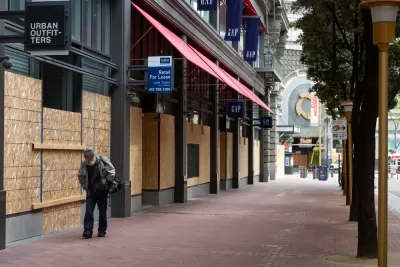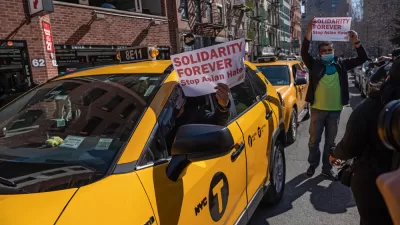Among unwelcome lessons of COVID-19 is growing evidence of what was already broken in politics and business. Ben Brown looks at making bold changes in order to improve the lives of the left out and left behind.

"This is the first of several posts planned for the next few weeks on lessons we’re learning from the pandemic and how local and regional governments might respond – not only to the crisis itself, but also to weaknesses in policies and processes COVID-19 exposed.
"Let’s start with an understatement: Community development leaders – whether they’re in government, non-profits, or the private sector — are likely to remember this time as the most challenging of their lives. Every hard choice is harder, every strategy fraught with uncertainty.
"At the moment, we’re upping the anxiety and the stakes for decision-making as governors in a majority of states bow to pressure to lift stay-at-home restrictions that were intended to slow the spread of COVID-19. Ahead is a series of uncoordinated experiments that will produce as-yet-unknown outcomes everywhere. Officials are betting lives and economies on assumptions that are at once wishful thinking and probably inevitable. We can’t expect people to hide in their homes forever.
"Response to the pandemic is a global challenge. But impacts are felt most quickly and most dramatically in local and regional jurisdictions where people live and work and where Americans tell pollsters they have the most faith in government. It’s also where the resources for responding to the crisis are most threatened."
Brown discusses the leaky pipes of both physical infrastructure and policy, and how doing the biggest little thing may help us deal with the uncomfortable realities and the barriers that must be overcome.
FULL STORY: After the Plague: Go Big or Go Backwards?

Alabama: Trump Terminates Settlements for Black Communities Harmed By Raw Sewage
Trump deemed the landmark civil rights agreement “illegal DEI and environmental justice policy.”

Planetizen Federal Action Tracker
A weekly monitor of how Trump’s orders and actions are impacting planners and planning in America.

The 120 Year Old Tiny Home Villages That Sheltered San Francisco’s Earthquake Refugees
More than a century ago, San Francisco mobilized to house thousands of residents displaced by the 1906 earthquake. Could their strategy offer a model for the present?

In Both Crashes and Crime, Public Transportation is Far Safer than Driving
Contrary to popular assumptions, public transportation has far lower crash and crime rates than automobile travel. For safer communities, improve and encourage transit travel.

Report: Zoning Reforms Should Complement Nashville’s Ambitious Transit Plan
Without reform, restrictive zoning codes will limit the impact of the city’s planned transit expansion and could exclude some of the residents who depend on transit the most.

Judge Orders Release of Frozen IRA, IIJA Funding
The decision is a victory for environmental groups who charged that freezing funds for critical infrastructure and disaster response programs caused “real and irreparable harm” to communities.
Urban Design for Planners 1: Software Tools
This six-course series explores essential urban design concepts using open source software and equips planners with the tools they need to participate fully in the urban design process.
Planning for Universal Design
Learn the tools for implementing Universal Design in planning regulations.
Clanton & Associates, Inc.
Jessamine County Fiscal Court
Institute for Housing and Urban Development Studies (IHS)
City of Grandview
Harvard GSD Executive Education
Toledo-Lucas County Plan Commissions
Salt Lake City
NYU Wagner Graduate School of Public Service




























